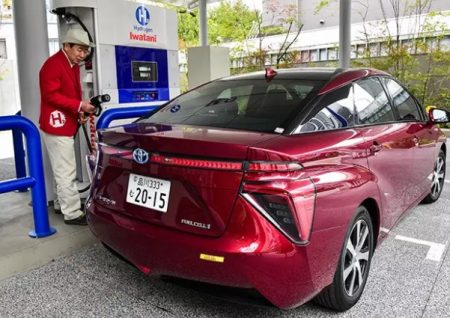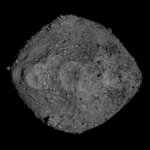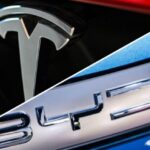October 24, 2017 – Honda and Toyota are betting on hydrogen fuel cells as the ultimate power source for future zero-emission vehicles. Both companies have models on the road, Toyota’s Mirai, introduced in 2014, and Honda’s Clarity, in 2016. Even Korea’s Hyundai has recently shown a hydrogen fuel cell SUV under its Genesis brand, as well as a model of the Tuscon SUV. Mercedes plans to show a fuel-cell-plug-in electric car at an auto show by year end.
Yet electric vehicles (EVs) powered by lithium-ion (Li-ion)battery packs remain the industry response to the issue of carbon emissions for the moment from the transportation sector. But if every vehicle on the road today were to be an EV, impossible considering the lack of production numbers, we would reduce global carbon emissions between 10 and 20% from current levels.
Why the variable? The estimate is a function of where electricity is sourced that goes into battery-powered vehicles. If coal-fired power plants are large contributors, then the emission savings are closer to 10%. But if the electricity is drawn mostly from renewable sources, then emission reductions could hit 20%.
Hydrogen fuel cell cars have been a dream of those who have dabbled with the technology for decades. The biggest advantage these vehicles provide is familiarity. If there were a hydrogen filling station in your neighbourhood, you would pull your car up to the pump and in 5 minutes be refueled and ready to go 500 kilometers (approximately 310 miles) before having to stop to refill the tank. When you compare that to today’s EVs, there is little resemblance. At the fastest charge stations available today, a Tesla Model S would take 30 minutes to recharge to 80% capacity, and would, therefore, give you a driving range of fewer than 400 kilometers before another 30-minute pit stop. In both of these scenarios, there is a need for a fueling infrastructure which doesn’t exist today. If the infrastructure were there, however, one could easily see why consumers would pick hydrogen fuel cell cars over EVs.
There are several other caveats to the hydrogen story.
- Producing hydrogen economically remains a challenge. There are currently two methods. Hydrogen can be harvested from natural gas. Or it can be extracted from water. The natural gas route produces carbon emissions. The water route requires electrical power to break up the water molecule into its constituent atomic parts. The power can come from zero-emission sources and even be locally produced at a fueling station if solar panels or wind turbines were used.
- Producing hydrogen fuel call cars is more expensive and time consuming then manufacturing EVs. Fuel cells today use platinum, an expensive component. That’s why the Toyota Mirai retails in the United States for $57,500. And as for complexity, it takes over an hour to build a Toyota Mirai using current industrial processes, while a Toyota Camry rolls off the assembly line every 60 seconds.
- Creating a hydrogen fuel cell infrastructure with sufficient numbers of stations is far more expensive than current fueling infrastructure. Each hydrogen fueling station currently costs five times more at present. EV recharge stations in comparison are dirt cheap.
- There is a perception from history that hydrogen is far more dangerous than battery-powered technology. The Hindenburg explosion in 1937 comes to mind. Yet battery fires happen, particularly with today’s Li-ion technology at much greater frequency than fires from the current fleet of 14,000 hydrogen-fueled forklift trucks used in warehouse operations across the United States today.
But if autonomous vehicles should become the standard by which many of us commute to and from work each day, then the lack of a highly distributed fueling infrastructure is less of a necessity whether hydrogen fuel cell vehicles or EVs. Charging or refueling would be done at strategically distributed hubs with large fleets of vehicles ready to be summoned on demand by consumers.
Among the biggest detractors of hydrogen fuel cell cars is Elon Musk who described the technology a few years ago as “mind-bogglingly stupid.” Musk at the time described hydrogen as always being the fuel of the future but never practical. He questions the advantages of harvesting hydrogen using electricity to then generate the power in a fuel cell stack versus just directly charging batteries.
Yet Japanese automakers are very much focused on hydrogen as an environmentally friendly alternative and are lobbying the government in Japan to make it simpler to implement a hydrogen fuel infrastructure. Today anyone opting to build a hydrogen fueling station has to demonstrate previous experience handling hydrogen. The Japanese government requires station operators to record the license plates of every hydrogen-fueled car that uses their facilities to refuel. Hydrogen storage regulations currently require tanks to be kept out of direct sunlight even though temperature controlled storage is used. Ultimately, the automakers believe that with revised regulation the cost of building and operating a hydrogen fueling station can be reduced by half by 2020.
The current Prime Minister of Japan, Shinzo Abe, who just won reelection in the last week, has made the rewriting of hydrogen fueling regulations a priority. He stated in April of this year that he wants to see 40,000 hydrogen fuel-cell vehicles on Japanese roads being served by 160 fueling stations in time for the Tokyo Olympics in 2020.











[…] recent years, Japanese automakers Honda and Toyota have invested in hydrogen-powered fuel cell cars. Hydrogen fuel cell EVs have a driving range of up to 500 kilometres (310 miles). Refilling a fuel […]
[…] putting all its eggs into the electric vehicle (EV) basket. It has had limited success with the Mirai, the first commercial hydrogen fuel cell car. Its vehicle lineup is dominated by internal […]